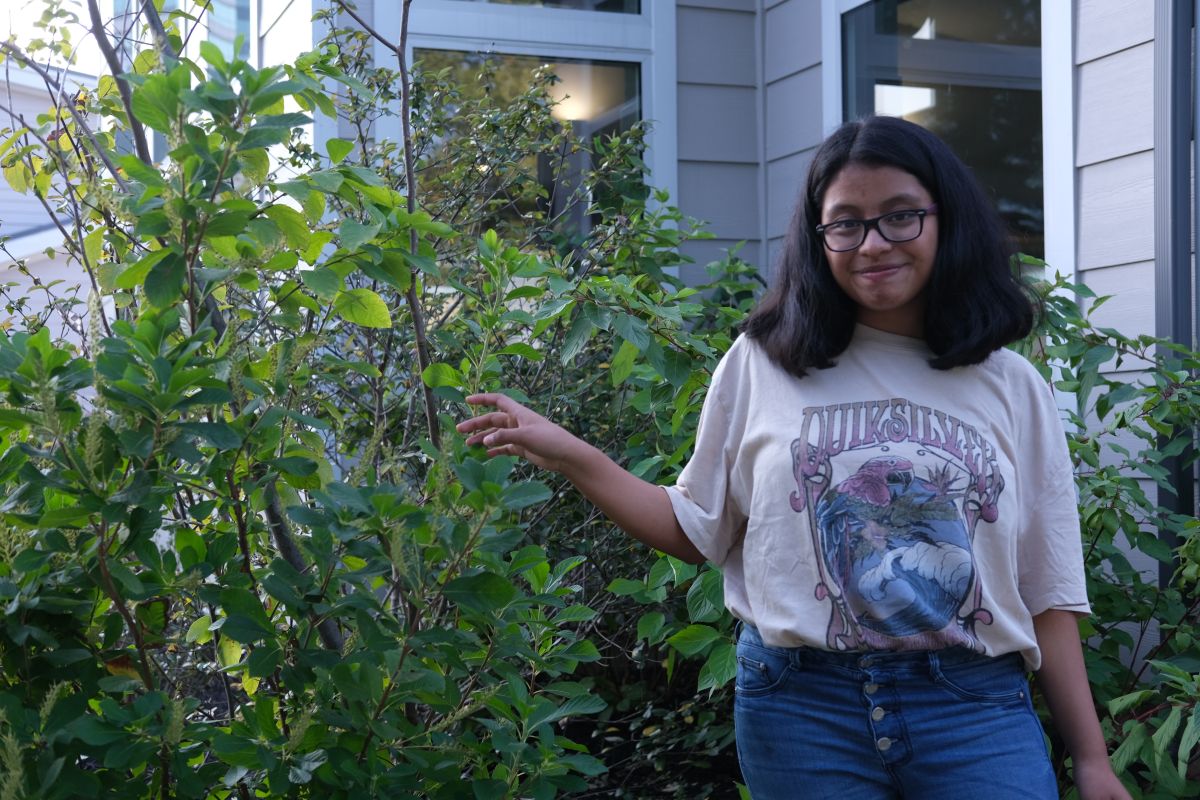“Study a lot, mijita, yes?” my grandmother reminds me every time I call her in Ecuador, and her voice resounds on the phone. She’s more than 3,000 miles away, but even from here in Newark, New Jersey, I can hear vendors hawking as music thunders through the streets.
Make sure you study hard, okay?
It is a simple request and a common phrase in all cultures and geographies. In the case of my maternal grandmother, María Isabel, I know that she comes from wanting for me what she could not have: education, independence and professional opportunities. When she was little, her favorite class was history, and she kept a notebook in which she drew historical figures, decorations, and flags of different countries.
Although she dreamed of finishing high school and doing humanitarian work, she had to drop out of school and start working at the age of 12 to support her family. She also arranged for her to get married when she was only 16 years old. That was the reality for many young people in Ecuador, especially those with limited resources.
She wanted more for her children.
But when my mom was 16, she also dropped out of school and went to work. She got tired of having to cover her torn shoes with white paint because it was out of her family’s means to buy new ones. Seeking independence, she left, only to return a year later when my grandmother convinced her to finish high school. She did, and then she pushed herself through college while also raising a young daughter: me.
Then, when I was 11 years old, we moved to the United States and settled in Newark. Even before she could speak English fluently, she enrolled in college, determined to take advantage of the opportunities a country like the United States offered her. As an immigrant, she battled language barriers and the impatience of people, who assumed that her poor command of English meant she wasn’t smart. My mom always proved them wrong. In May, my mother graduated with honors from the university.
I am 16 years old. The same age my grandmother was when she was forced to get married, and the same age my mom was when she dropped out of school. I often think about how different my life is from theirs. In two generations so much has changed: where we live, the languages we speak outside the home, and the norms that govern women’s achievements.
In Ecuador, opportunities and good employment are scarce. Age trumps wisdom, which is why young people are not encouraged to speak the way they do in America. This experience has made me realize how lucky I am to live in a country with spaces and programs that empower youth.
That’s why I decided to enroll next year in my school’s International Baccalaureate (known as IB), a program known for its rigorous curriculum. Taking this step has made me reflect on my grandmother and my mother, the women who made it possible for me to receive a first-class education.
Although my gratitude is immense, it comes with a silent pressure to succeed and an unwavering need to achieve something. With a plan to pursue my dreams beyond what I thought possible, it’s up to me to embrace this new community and make sure my life journey is one I don’t regret.
My mom and my grandmother are the ones who endured the harsh reality of an austere society and still have managed to live like winners of life. Their stories are ones of sacrifice, but their sacrifices aren’t the only thing that makes them extraordinary. Their lives are also defined by hope and perseverance. For example, my grandmother, who is now 54 years old, is recovering what she could not experience when she was young, such as taking knitting classes, dancing, singing, and going out with her friends. My mom, for her part, is running her own small business and has plans to pursue a master’s degree in accounting. Their lives remain complex and greatly affected by our circumstances, but they have always managed to persevere.
That’s why, when my grandmother, on the other end of the phone, tells me: “Study hard, my daughter, yes?”, a million thoughts cross my mind because I know how much that simple request means to her and to us.
“Yes, I will,” I reply.
Words are not enough for me to express my gratitude for the path that they have forged for me, but at that moment it is simply perfect.
Karen Otavalo is a tenth grader who loves to draw and write in her free time. This fall she will be enrolling in the IB program and her chosen course focuses on the study of world politics. She also works as a Youth Counselor at Crittenton National and is a Chalkbeat Student Voices Fellow in Newark. In the future, she hopes to help disadvantaged communities through creativity and community service.
(Translated by Milly Suazo-Martinez)
To read this article in English visit https://newark.chalkbeat.org/2023/6/22/23767567/three-generations-ecuador-usa-newark-mother-grandmother-international-baccalaureate
